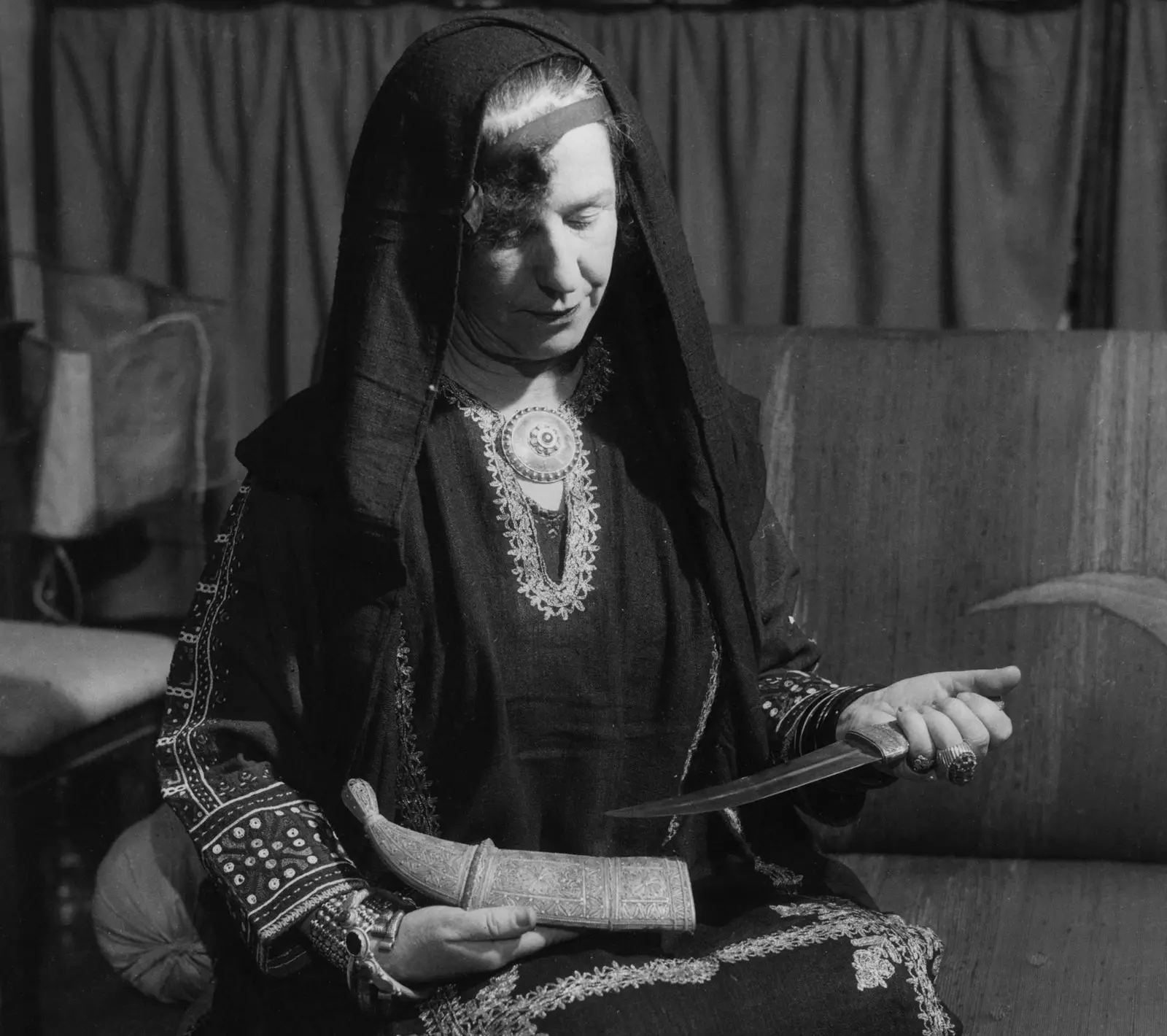
Freya Stark, an intrepid explorer
"The only advantage of being a woman is that she can pretend to be stupid without anyone being surprised." Freya Stark traveled the Middle East on the back of a donkey and a camel. She spoke ten languages which included Arabic, Persian and Turkish. Her weapon was empathy and the bewilderment imposed by her figure in a desert landscape.
Nothing in her life was assimilated to the norm. She was born in the last decade of the XIX century in Paris. Her mother was of Italian-German-Polish descent; her father her english. It is preserved from him a bronze rhinoceros at the Tate Gallery. Both were dedicated to painting, sculpture, music.
Freya's childhood was nomadic. Her father's family's house in Devon, with its Victorian, country atmosphere, was a short-lived home for her. The marriage broke up and Flora, her mother, took her and her sister to live in Asolo, a village in the Veneto mountains. There she met Count Mario di Roascia.
On a visit to a textile factory owned by her stepfather, Freya's hair got caught in a machine industrial. She lost part of her scalp and sustained damage that surgery failed to fully mitigate. She found in the hats a way to cover the aftermath of the accident; in reading her a refuge from the familiar chaos.
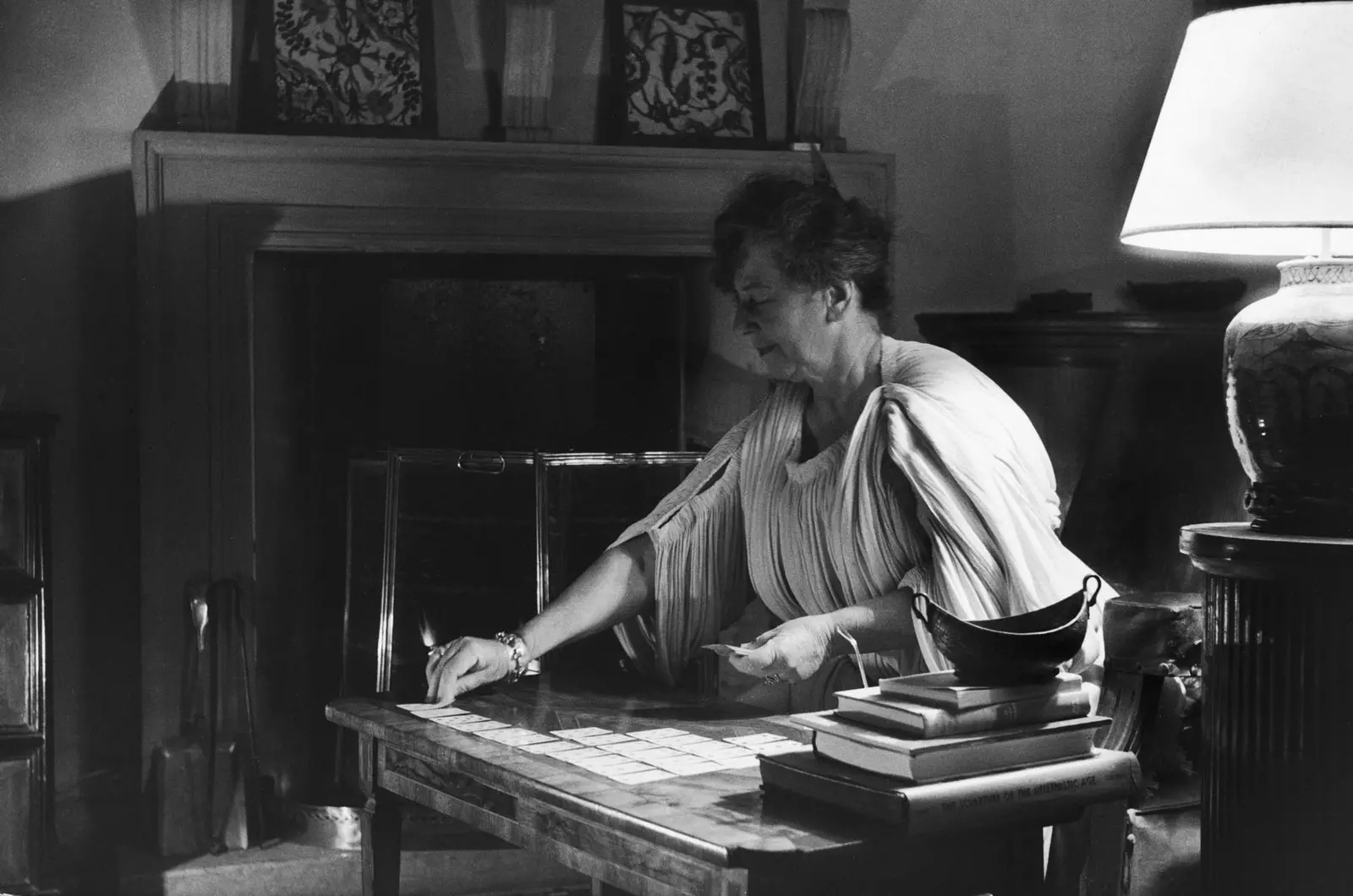
For Freya, the journey had made life more intense
At the age of nine, she had been given a volume of Arabian Nights . The oriental fantasy grew up in maps in which she was lost, and she reached the academic in the London School of Oriental Studies , where she graduated at the age of thirty.
Freya seemed destined for a health-oppressed spinsterhood. She had suffered from pleurisy, typhus, pneumonia and ulcer. But when her sister died from pregnancy complications, she decided to leave. “She died for letting others decide how she had to live”, she affirmed years later.
She boarded a merchant ship bound for Beirut. The Middle East had been divided between France and Great Britain after the First World War. She intended to consolidate her command of Arabic, but she was drawn into the Druze revolt in Syria.
She traveled by night on secondary roads on the back from a donkey until she was stopped by a French soldier. With an answer that would become habitual, she replied that the Thomas Cook guide indicated the wrong address.
Four years later she undertook her most famous journey. When she arrived in Baghdad she refused to reside in the diplomatic compound and she stayed with a cobbler in the prostitutes' quarter. She from there she went into western Iran in search of the Valley of the Assassins
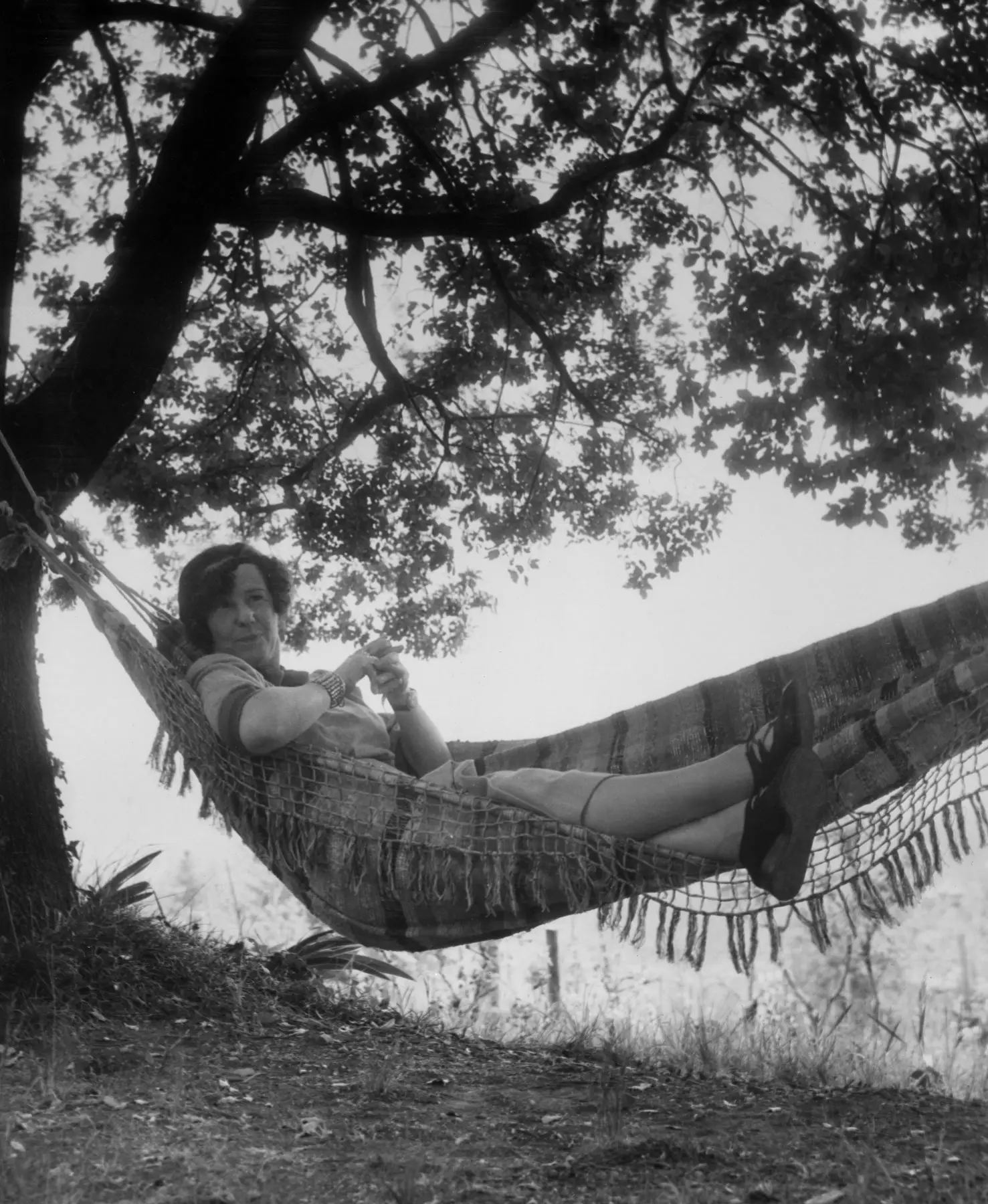
She continued writing until her death, at the age of one hundred.
She had read in the chronicles of Marco Polo that in the fortress of Alamut she drugged members of the hashashin sect with hashish. They were taken to a hidden garden where they lived orgiastic experiences. Upon awakening they were warned that only they could return to paradise if they died in combat against the enemy. Hence his fierceness.
After several attempts, Stark reached the castles of the Assassins. The inhabitants of the Elburz Mountains had never seen a Western woman: they touched her skin, the fabric of her dress. Her chronicle, full of harems, sheikhs and thieves, achieved great success and was awarded by the Royal Geographical Society.
Her next trips took her to Saudi Arabia and Yemen. She there she searched for the city of Sabhwa , capital of the biblical kingdom of Saba. She made contact with the Bedouins and rejected the slavery practices of the region. She listened attentively to women and mullahs.
She did not bat an eyelid when a supposedly progressive notable claimed that she was not opposed to female education as long as she did not live past the age of nine. Her trip was interrupted by measles and dysentery. She came back two years later and recounted it in A Winter in Arabia.
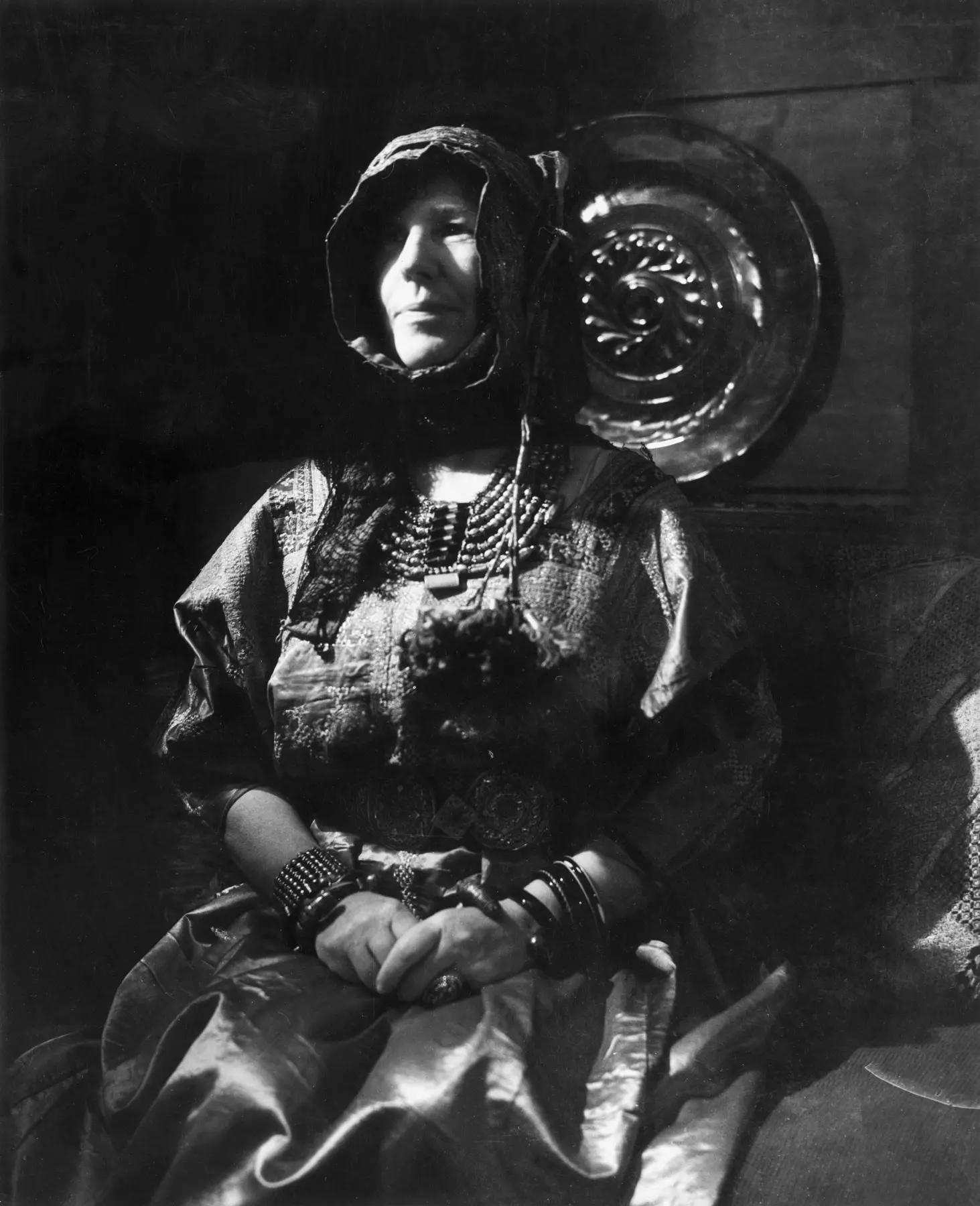
Freya dressed in the traditional costume of the Hadramaut region of Yemen
When starting the Second World War, she did not hesitate to put herself at the service of the British Ministry of Information. Her knowledge of the Arabic language and culture made her a valuable asset to the intelligence services. She made use of her prestige to stop the drift that was tilting the area towards the Axis and distributed Allied propaganda films.
A pro-Nazi coup surprised her in Baghdad. She took refuge in the English embassy along with another hundred and fifty people. There, as usual, she used a fake femininity with the Iraqi guards to get supplies, makeup and soap. She organized talks and concerts until the city was liberated by a British battalion from Haifa.
Stark was not interested in politics beyond injustice. He based his analysis on his own experience. Regarding the colonial system, he stated: "Most people prefer to have their lives in their hands, even if it means having to give up certain advantages."
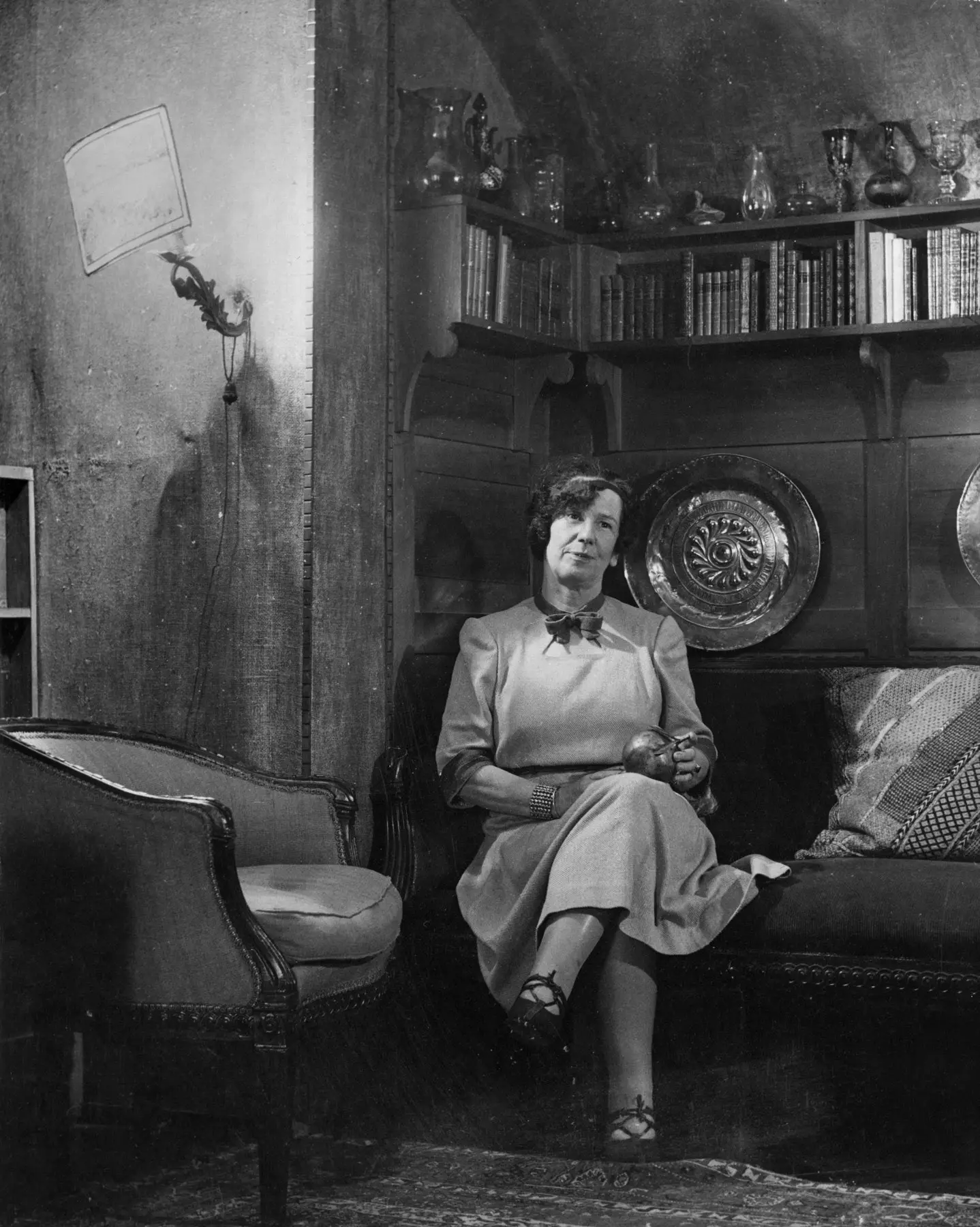
Freya Stark in Asolo, Italy
After the war, her ties to the Palestinians led her to undertake a series of conferences in the United States in which she defended the control of Hebrew immigration into what would become the state of Israel.
Her pro-negotiation stance earned her accusations of anti-Zionism. On leaving she declared that the country had seemed materialistic and superficial to her, and that she had only been able to understand the Jews.
After a brief marriage to an English Arabist and diplomat, she confirmed that married life was not for her. She was about sixty years old. She retired to Asolo, where she had spent much of her childhood, and from there she undertook several trips to Turkey, which led to the publication of Alexander's Route. The story shows a reflective spirit, in which the ruins and the landscape take center stage.
She embarked on her last voyage to the Orient at the age of seventy-five. She wanted to see the Djam minaret, recently discovered in Afghanistan. She continued writing until her death, at the age of one hundred.
In her last publications, she stated that for her her journey had made her life more intense. She did not consider it essential, but, in her opinion, there was no better way to know the human being.
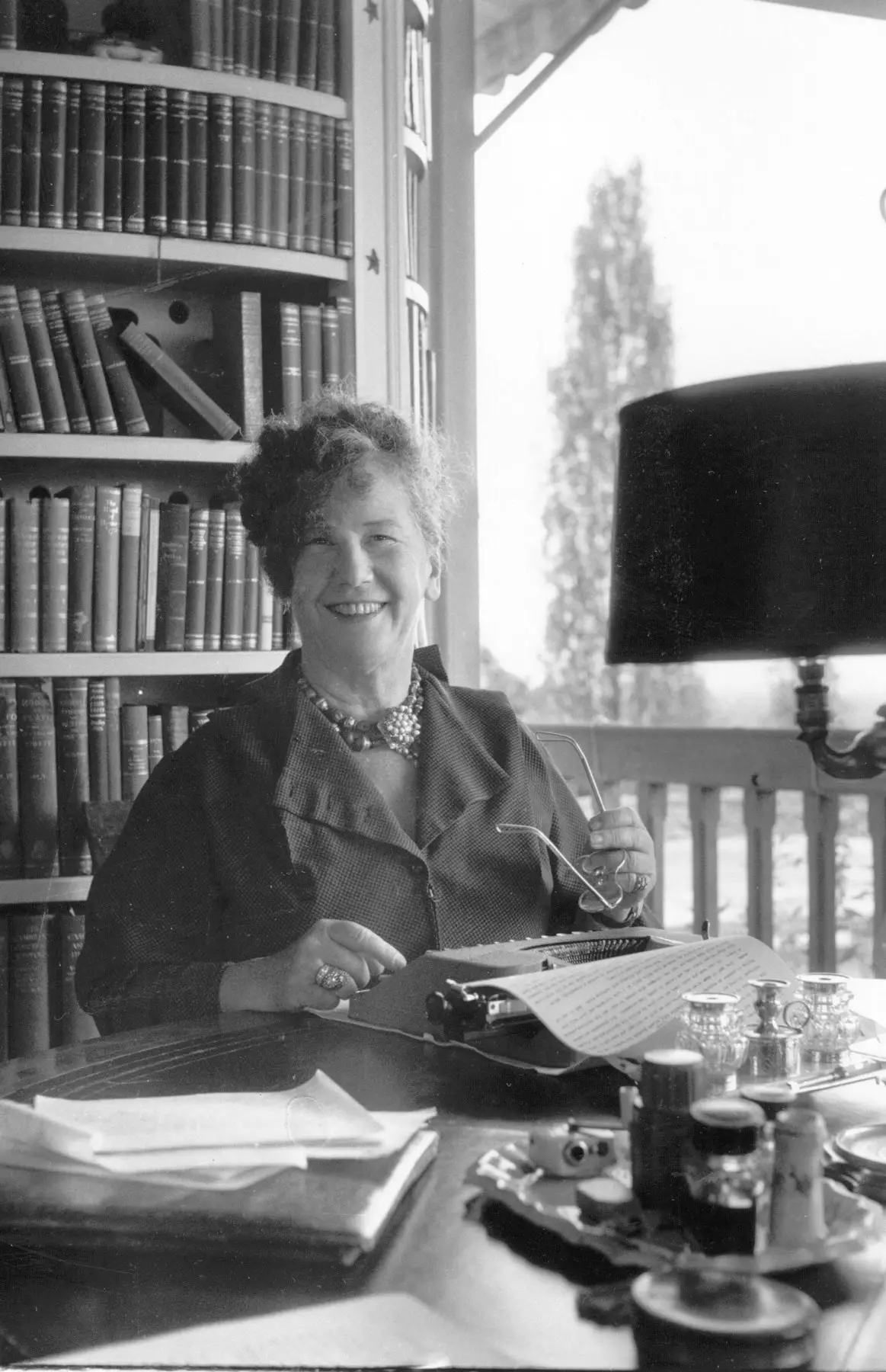
"Most people prefer to have life in their hands, even if it means having to give up certain advantages"
